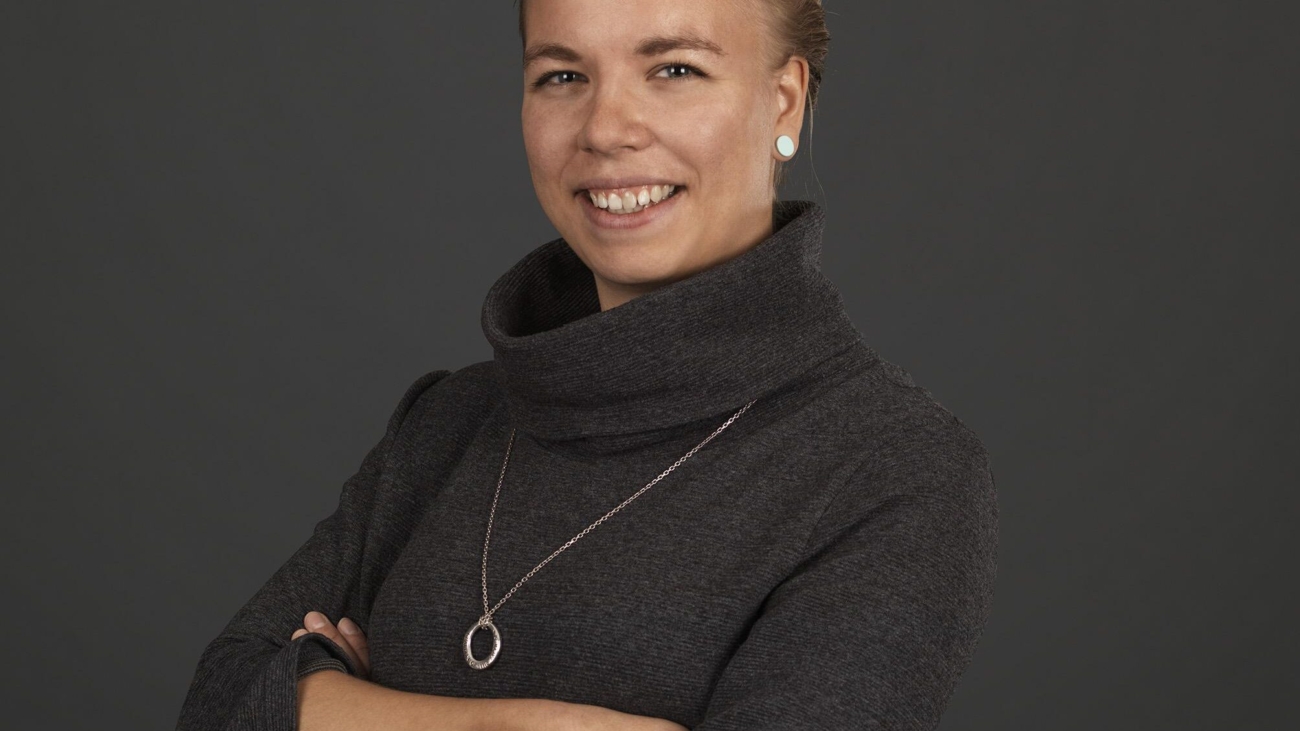The twelfth episode in the The Legal Technologist podcast series devoted to alternative legal careers. The All Paths Lead to Legal Tech series continues with a conversation with former solicitor and legal engineer Will Lilley.
Episode 13 – Wayne Ullah
The thirteenth episode in the The Legal Technologist podcast series devoted to alternative legal careers. The All Paths Lead to Legal Tech series continues with a conversation with Wayne Ullah, Process Improvement Manager at law firm Stephenson Harwood.
Episode 14 – Mercy Chirau
The All Paths Lead to Legal Tech series continues with a conversation with Mercy Chirau, Technology Solutions Manager at Womble Bond Dickinson.
Career Story: Doruntina Berisha
What do you do now and what do you enjoy about it?
I recently took a bold step forward in my professional journey by becoming an independent Legal Tech specialist. I take charge of law firms’ legal technology implementations, helping them gain a competitive edge in the market.
I enjoy that I can take full ownership of the projects. It gives me the freedom to be creative and play a role in shaping the future of the legal profession.
How did you get to where you are today?
My journey began during my studies at the University of Vienna, where I pursued both physics and law. I studied both because I excelled at science, but was curious about the legal profession. While it was a daring decision at the time, I am grateful for the path it set me on today. Studying physics taught me to think outside the box and to be a problem solver, which enriched my abilities as a legal tech specialist today. Physics also introduced me to coding, which has become a useful tool for my legal tech career.
During my exchange semester at Santa Clara Law School in Silicon Valley, I took a class on “AI, Law & Business.” This class ignited my passion for technology and law; particularly the applications of AI in the legal field. It was during that time when I participated on my first legal tech project. Our team aimed to automate the expungement process in the USA. Witnessing the positive impact this technology could have on thousands of lives, I decided I wanted to do something with a purpose.
Upon returning to Vienna in 2019, I faced challenges posed by the Covid pandemic head-on. All universities shut down, and professors and students alike did not know what the semester was going to look like. To overcome the new social distancing laws imposed during Covid, I came up with the idea of creating a platform to help law professors transition to remote teaching. Collaborating with my team at the Department of Innovation and Digitalization in Law, we swiftly launched the platform, helping professors navigate through challenging times. For our efforts, I was both thrilled and honored to receive the European Women of Legal Tech Award 2020. During my time at the Department I was also in charge of organizing the “Legal Tech Start Up Day” and the “Legal Tech Hackathon”. Both of which proved to be great opportunities to network with people in the legal tech field.
After completing my studies, I wanted to work for a law firm that embraced innovation and technology. I seized the opportunity to move to Zurich and assumed the role of Head of Legal Tech for Code Law. We did everything relating to legal tech from conducting market research and identifying technological flaws to building digital startup packages. Being in charge of the legal tech project was an incredibly fulfilling experience.
What tips would you give to anyone following the same path as you?
First of all, you need passion for this job. You will need to deal with lawyers, that are set in their old ways, so try to be resilient and empathetic. Be bold, think outside the box, and network (I am always available for a chat on LinkedIn 😊). Last but not least, recognize that you are part of a transformative movement shaping the future of the legal profession.
Doruntina Berisha
From Employment Lawyer to Innovation Partner
*Record scratch*
*Freeze frame*
Yep, that’s me. You’re probably wondering how I got into this situation…
That was me last year sat on the stage of a panel discussion entitled “Shape and Structure of Law Firms in the Digital Age”.
Me, an employment lawyer for the 17 years sat with legal tech experts discussing what the future of firms will be (spoiler: this was before AI gained consciousness and we were all still dreaming of a life in the metaverse).
How then did I end up on that stage?
The Employment Lawyer and Me
Well I wasn’t there as an employment lawyer, rather I was there as a Product and Innovation Partner here at Weightmans, one of 5 we’ve introduced since May last year as part of our revised product and innovation strategy. The role I blend into being a partner in the employment team working with some of our largest corporate clients.
Being an employment lawyer is real life issues with real people. It’s all those interesting cases you remember from your law degree if you did one. If you didn’t then everyone knows someone who has had an employment issue they’ve needed help with. It’s also an area of law that evolves and changes every single day. For years we can be going left then a new decision comes along overnight and turns us all to the right.
Of course, being an employment lawyer means also being an advocate. The kryptonite to your Superman for a natural introvert. But it’s a necessary part of the job; the part which is out of the comfort zone, the part which pushes you to do the things you realise you can do even though you don’t want to.
And, most importantly, it’s the part which teaches you that this job is essentially 70% confidence and sounding like you know what you’re doing and 30% knowing the actual law. (I’m not a complete charlatan I do know some law, as one of my team said the other week “wow, you’re actually right about that” after I helped with a case. I don’t know who was more shocked, her with my answer or me with her response.)
Stranger Solutions
But that still doesn’t explain what you were doing on a stage at a legal tech conference Jon.
Well build in the fact I’ve never just been into service delivery of legal work. I’ve always thought there was more that could and should be done – the law is the easy bit; anyone can do that. It is how you do the work which is the interesting part and why clients want to work with you. Being frank, its also part of the fundamental challenge of how you deliver work profitably.
And so I’ve always made sure my team is at the forefront of whatever Weightmans is doing on those fronts.
It should also be fun too – that probably comes from the fact that I’m still something of a man-child at heart and my office at home is full of 80s themed Lego. Someone messaged me mid-Teams meeting the other day and asked ‘is that a Lego Transformer and a Nintendo on the shelf behind you?’ It clearly showed how interesting I was making the meeting… out of camera was the Stranger Things and Ghostbusters but let’s not digress. We’d be boring if we were all just plain stereotypical lawyers.
But having that interest and ability to see things differently has paid off. About 5 years ago a key client had a piece of litigation that involved several thousand claims nationally. It was threatening to overwhelm them. In dealing with the claims we were capturing their metadata but doing nothing with it. Then we took the decision to visualise it to see where they were coming from geographically.
In doing so there a lightbulb moment as it was apparent that there was a huge splodge of claims coming out of the Midlands. When we lifted up that stone, we realised there was a particular trade union rep pushing the claims. So we approached him and effectively said “look we will resolve this issue with you, but the more claims you put in, the slower this will take so just stop and work with us”. He did and we stopped the flow of claims.
A flat list of claims wouldn’t have allowed that. It was only when we brought them to life that we were able to see the pattern, act on it and ultimately mitigate the risk for the client.
Bricks of Change – Building the Best of Both Worlds
I was therefore quite happy in my lane, being an employment lawyer and blending in the tech and innovation where the opportunities arose.
But then, like all things which come along when you’re not looking for them, Weightmans saw the possibility of doing things differently when it came to innovation in Spring 2022.
As part of that was the opportunity to blend the best of both worlds, the ongoing day to day involvement with our key employment clients but to also work develop products and be innovative within our wider Corporate/Owner Managed Business sectors.
So what then is a Product and Innovation Partner and what do I do in that role?
Well, its something of a blank page in terms of what I want to create for myself but I best describe myself as being here to join the dots.
The dots between our clients, the partners and case handlers who work with them, our Innovation Team, Product Manager, Marketing and anywhere and anything else within legal ops and the Firm that we might need to help bring ideas and solutions to client problems to life.
In the first year we’ve developed a holiday pay service which we’ve been able to set up to scale and become repeatable thanks to our use of tech and innovative ways of working.
Drawing further on my employment law background we have delivered a tool which augments and aids managers decision making when it comes to their obligations under the Equality Act. That came runner up for Best People Initiative at the Managing Partner Forum Awards and will become part of a wider suite of HR-based tools.
But it’s not just employment-based initiatives. We’re currently piloting a tool relating to statutory obligations for transport managers and have audit tools for ESG due diligence and contract checking for banking and commercial T&Cs in development.
For some of these products I may understand the subject matter but for others I’m coming in at the ground floor. But that’s okay, I don’t need be an expert on vehicle license checks, I’m in the room to drive (excuse the pun) the project and make sure the right people are involved and to offer ideas and solutions where I can. And if I need to be in the room with a client, that’s where the 70/30 comes in.
Seeing the Possibility
So this year has been a huge learning curve, but its added some new key skills even at this stage of my career. I’ve had the benefit of some exceptional sales training and I’ve found a platform and audience on LinkedIn to share what I do and blend the two worlds – who knew people actually want to hear about what I do?
So that’s me, and that’s why I’m sat on this panel about to offer an opinion on how my role has changed, why my skills as a lawyer make me ideally suited to help with being innovative and bringing together clients and our own people as part of the future of service delivery and how Weightmans are already doing that as part of approach in being able to see things differently.
And at the end of the day, I’m comfortable that I don’t know, or even need to know, all the technical details of the tech and ways of work. I just need to know where to go to find the person who does. I also don’t really get the metaverse. And fast forward to today, let’s be honest I’ll probably just find my feet on that 30% in time to be replaced by an AI version of myself. Oh well at least I’ll have time to build my Lego.
Jon Gregson
Product and Innovation Partner
Weightmans LLP
Celebrating Women in Technology
Happy belated International Women’s Day to all Legal Technologist readers!
The accidental technologists (all being women) were keen to celebrate IWD and use this article to honour women in technology, carrying on the brilliant work of our Mills & Reeve “Inspiring Women in Technology” group.
The accidental technologists thought long and hard about the themes we could cover in this article. In the end we decided to focus on positive change, sharing inspirational stories of our own women in technology and top tips on how we can all do our bit to help overcome the challenges that women in technology face.
Imposter syndrome
Perhaps a good place to start is imposter syndrome, what it is and why it could impact women in technology.
Imposter syndrome includes feeling fraudulent, doubting abilities, and the inability to believe your success is deserved. In a male dominated environment, women in technology often experience imposter syndrome, especially as our career journeys may not have been as direct as our male counterparts.
Imposter syndrome has a nasty habit of holding you back from wanting to talk about it, which can feel isolating. As everyone experiences it in different ways, there is no one size fits all solution. However, our learning and development manager, Amy Pilmer, has some great top tips to manage the negative effects of imposter syndrome.
Top tips to tackle imposter syndrome
Catch it: Identify your imposter syndrome story
Pause and reflect on your imposter syndrome triggers, thought patterns and behaviours. When did you start to have imposter syndrome feelings? How does this impact how you feel and react in the moment? The greater the understanding of how imposter syndrome impacts you, the better placed you’ll be to manage it in the future.
Check it: Validate your thoughts
Acknowledge your imposter and build a relationship with it, perhaps create a persona (incidentally, mine is Gollum from Lord of the Rings). Be curious with your imposter. Why do you think you can’t do this? What assumptions are you making? How did you overcome this before? By getting to know your imposter, you can work with it, rather than against it.
Change it: Reframe those negative thoughts
Engage with your successes, however big or small. This is your evidence to prove that thoughts aren’t facts! Just because you feel like an imposter, it doesn’t mean you are one.
Treat yourself (and your imposter) with some compassion! Think about the situation from the perspective of a colleague or loved one. What advice would they give you?
Give it a try! It’s about the small wins.
Celebrating women in technology
Someone who overcame imposter syndrome to become (an award winning) woman in technology, is our very own not-so accidental technologist, Emma Jackson.
Emma is now client innovation manager and data strategy lead at Mills & Reeve and has confessed to experiencing some feelings of isolation and loneliness during her career in a very male dominated industry. She now leads a team of 10 in the client innovation team, 75% of whom are women.
Emma started as a legal secretary 17 years ago, although she always had a natural interest in technology, she sadly found it was far easier to obtain a secretarial role as a woman rather than an in IT.
Luckily, Emma was encouraged by her senior secretary to apply for an IT trainer vacancy. Eventually (after proving herself on a weekend upgrade job) Emma moved into the IT service desk team and spent 10 years as the only woman in the IT department.
Using her technology skills from a decade in IT, Emma became involved with “whizzy” legal technology projects (all the fun stuff from AI and automation to workflows etc.). Naturally, Emma became the first member of the client innovation team at Mills & Reeve, exploring innovative ways of working and new legal technology. Throw in a global pandemic which catapulted the need for online collaboration to the forefront of the working day, and Emma is likely now one of the most name-checked people in the business.
Emma took every opportunity that came to her, putting her imposter syndrome aside and allowing herself to give it a go. She also had fantastic support around her, which leads nicely on to top tips for how to support women in technology.
Top tips on how to support women in technology:
Want to hear more inspirational stories from women in technology? Have a watch of the two brilliant webinars hosted by our Inspiring Women in Technology group to celebrate IWD in March, links to both are included below.
Inspiring women in technology: imposter syndrome
Grace MacWilliam
Innovation Engagement Advisor
Mills & Reeve
Picture by Andrea Piacquadio
Career Story: Laura Jeffords Greenberg
Lawyers know how to learn. That’s our job. However, one of my biggest career challenges has been learning about myself. I’ve struggled to align my work with my values..
When people ask about my career path, my short answer is: sports lawyer turned media lawyer turned tech lawyer. Through these experiences, l’ve learned: (1) to pursue audacious goals (2) change isn’t failure, and (3) to align my values with my work.
Current Role
Recently, I joined Worksome as the Senior Director of Legal and interim General Counsel. Worksome is a platform that makes it easy to hire, manage, and compliantly pay flexible talent anywhere in the world. I was attracted to this opportunity for three reasons: (1) the people, (2) culture, and (3) unique legal opportunities.
The people are what sold me on Worksome. The company focuses on attracting and retaining talent by actively building a culture of trust, transparency, and inclusivity. As a result, the team is enthusiastic, engaged, and has fun at work!
From a legal point of view, Worksome presents two unique opportunities. First, one of Worksome’s tools, Classify, provides legal recommendations. This means the legal team is essential to building the product, which as a former product counsel, is an exciting opportunity.
Every day I go to work excited to build the legal department of the future
Laura Jeffords Greenberg
Second, Worksome is focused on improving the future of work. The company fully supports developing an innovative legal function. Every day, I go to work excited to build the legal department of the future.
But it’s taken a long time to get here – where my work is aligned with my values, and where I utilize my strengths in a supportive work environment. In the past, I’ve ignored mismatches because I was too focused on superficial aspects like the sexiness of a brand or product. In learning about myself, I’ve also come to understand that change is not failure; it’s staying true to yourself when something is not working.
One constant that has enabled me to pivot my career is my belief in myself. I set audacious goals because I believed I could achieve them. For example, during law school, I set a goal of working at the National Football League (NFL). Almost everyone discouraged me from pursuing this seemingly unattainable goal. But through networking and volunteering in the sports law community, I started full-time work at NFL 6 months after law school graduation.
What I’ve learnt
Working at the NFL was an exciting opportunity. But, I learned two key lessons about myself. First, my values aligned with the players rather than the management. Second, the prospect of doing the same work season after season, year after year, was a big turn-off. So I made a change.
My next big three learnings came while working at Red Bull Media House in Salzburg, Austria. First, I enjoyed working for a risk-taking business because it required creative problem-solving. Second, I found one of my superpowers was creating greater efficiencies for the legal team. Third and more importantly, as an American working in Europe, I learned to work to live rather than live to work.
When I left Red Bull to relocate to New York for my husband’s job, a colleague gave me great advice. She suggested looking at tech startups because they were more closely aligned with Red Bull’s culture. She was right – I became the first legal counsel at a VR startup and loved it!
During this time, my husband and I realized we felt more connected to life in Europe and set a goal of moving to Copenhagen. I began volunteering with European tech organizations to move closer to this goal. That’s how I ran across Unity’s career page, where I found a job description that was written for me. I applied and Unity moved my family and I to Denmark. Now, I’m working for a Danish startup and loving life in my adopted country.
Fulfilling work
Through ups and downs, I’ve found these beliefs are key for fulfilling work:
Set audacious goals.
- Believe in yourself.
- Network and pursue opportunities that get you closer to your goal.
- Broadcast your goals (the universe has a way of conspiring with you).
Recognizing change isn’t failure.
- Change is being true to yourself (so change what isn’t working).
Align your work with your values.
- Chase opportunities aligned with your values.
- Aligning your values with your work will empower you to shine your brightest.
- Don’t get distracted by “shiny objects”; a supportive work environment where employees are valued is more important than anything superficial.
And don’t forget to have fun along the way!
Career Story: Isha Upadhyaya
An increasing number of law firms are hiring lawyers who can code in order to help them optimize their internal processes. It is a unique profile of a person who understands the intersection between law and technology.
I am an IT & Data Protection lawyer at Sirius Legal Business Law Firm in Belgium. During my working hours, I am not only practising law, but also working on the use and development of the legal tech tools at my firm. In particularl I code our contracts in order to automate our contract drafting process.
A coding lawyer, why?
Well, it’s pretty logical. Lawyers can spend hours searching clauses in contracts they, or colleagues, drafted months before. Contracts have so many layers of nuance, that it’s just not enough to work with standard templates.
If contracts are coded, you can collect many layers of nuance and store a variety of versions of a single clause. At our law firm, lawyers can now simply fill in some questions and a contract is automatically generated. No more struggles with layout and finding clauses. It saves plenty of time and the output is of higher quality. This allows us to invest the saved time in focusing on our clients: we guide them through the contract and make time to adjust it to their story.
How did you learn it?
At our firm, we use a contract automation platform called ClauseBase, which basically became an online library of our firm’s clauses and documents. During my Master’s Degree, I was intrigued by the intersection between law and technology and decided to do an internship at the legal tech start-up ClauseBase. There, I learned to work with the software and was amazed by the many possibilities it offers. In the beginning, it was a huge mind shift. You learn to read clauses and contracts completely differently, approaching them in a rather logical, conditional way. With every paragraph or sentence, you have to think: in what situations should this be written here? I could let my creativity run wild while building contracts and creating contract libraries for law firms.
I worked at ClauseBase for about a year before starting a career as a lawyer at one of their client law firms, the firm where I work today. Sirius Legal was looking for someone who could translate their contracts in the software and thus automate the contract drafting process. And even better: they wanted me to work on other legal tech projects as well.
Are you enjoying what you do today?
Yes, very much. Innovation is key in the firm I work for, we are constantly innovating and optimising our services. Recently, we launched an entire webshop of legal products with transparent, fixed prices – one of the first of its kind in Belgium. In many law firms, it is still not the done thing to question the classical “billable hour”, even if this has become completely outdated in today’s world. Clients require transparency on pricing and expectations. With all the tools we use at our firm, we manage to embark on a journey together with the client, one that is exciting and promising, where we have more time to create a relationship.
Moreover, it gives me real satisfaction to work on an internal project for months and then finally see it go live, like our webshop. It is an insightful addition to my client-oriented work. However, it still is a challenge to find the right balance between client projects and internal process optimisation projects. In an ideal world, I would spend one afternoon per week on internal projects, but the reality is that urgent cases and deadlines often undermine this intention. What can I say – it’s an ongoing process in which I am learning every day.
What advice would you give to anyone pursuing the same route?
Today’s labour market is competitive, but there is also a high demand. Find a way to differentiate yourself and stand out from the crowd. Legal tech is a continuously growing sector. Many law firms intend to adopt certain tools or software, but don’t have the capacity to implement it. Fill that gap and explore how you can add value to a company.
In addition to this – take on every opportunity you can get, no matter how small, because you never know where it may lead you. Be open minded and dare to step outside of your comfort zone, only then, you’ll grow.
Isha Upadhyaya
Attorney-at-law
Sirius Legal
H as in Hybrid: My legal tech/legal hybrid role
In recent years, the legal sector has undergone a lot of welcomed change. However, certain aspects in the sector are still quite traditional and can be perceived as dividing. Your colleagues are most often divided into lawyers, or business support. As a lawyer, you are either on a partnership track, or on the in-house one. The prevalent legal career in a law firm is still dominated by that of the junior associate – associate – senior associate – partner or special counsel, although we now also see an influx of new roles in the law firm, not least in the Legal Tech sphere. Thankfully, the division of roles in the legal industry is starting to get fuzzy around the edges. The legal sector today offers a variety of alternative roles as career paths, such as legal technologists, legal tech managers, legal designers, knowledge management lawyers, the list goes on. However, it is still very much a choice to be a lawyer or business support (i.e. what some would call non-lawyers). Although these exciting roles provide new frontiers for a legal career, it usually means leaving a lot of the legal work aside. For me, I wanted both.
For the past two years I have worked at DLA Piper in Sweden as a Legal Technologist, project managing our digitalisation initiatives, implemented new software and held countless of onboarding and introduction sessions. Working with Legal Tech in practice has been incredibly rewarding and exciting, and these two years have taught me a lot. In parallel, I have also completed law school. In June 2022, I graduated with a Master of Laws with a focus on IT and media law. I realised that I was now at an important fork in the road, one road leading me the Associate way and the other down the road of Business Support. One new challenge and one where I already have a lot of experience and expertise. It seemed like a waste of a good education to not at least try out the shoes of an Associate. At the same time, by now I almost have a self-proclaimed bachelors in Legal Tech, and I wasn’t ready to step away from my passion and expertise.
Instead of making me choose, my employer and I found a new way forward. I sat down together with the head of Knowledge Management and Legal Tech, Partners from the firm and the Head of Human Resources to discuss a hybrid role; a role combining both the traditional associate work and the Legal Technologist work. The result was a new role, the Legal Tech Associate.
A lot of experienced people will tell you that hybrid roles are tremendously difficult to do and get right. The risk is primarily that you end up working 200%, or that you end up dropping one or more balls because one part of the job (spoilers: usually the Associate side) simply takes up too much space on the agenda. Other risks to account for is lack of support for these roles, or lack of understanding of the value that a hybrid role can bring, not just for the individual, but for the firm as a whole. To mitigate these risks, we agreed on a few initial points for the hybrid role:
- The split is 40/60 – 40% Legal Tech work, 60% Associate work. This meant that all the lower level tasks previously part of the Legal Tech work, such as onboarding, offboarding and putting out the daily fires were removed from the job description and we also brought on the role of the Legal Tech Trainee.
- The billable target is 50% less than for full-time Associates. The percentage was decided to account for transition time, among other reasonings.
- This is a pilot, meaning we all agree to add a certain amount of flexibility, full transparency and short feedback loops to the equation.
As with any innovating pilot, Partner sponsors and team support is absolutely vital for success. I am fortunate enough to have two Partner sponsors, in addition to the support from Head of Knowledge and Legal Tech, as well as the full support of the Intellectual Property and Technology practice group in which I will be working.
So with these agreed terms, I face the Autumn in a new role. One part senior, one part junior. One part which I have walked for two years already, another completely uncharted territory for me. It will be an exciting pilot – and I look forward to giving you updates along the way, anything from lessons learned to full transparency on how much work I actually do within each role. You’re welcome to climb the new the dual ladders of law firm careers with me!
Malin Männikkö
Legal Tech Associate
DLA Piper (Sweden)
Career Story: Laura Collins Scott
I run a boutique consulting firm called Sparkbox. I help lawyers modernise their work and use more technology.
My story
I’ve always had an entrepreneurial spirit.
My first business was selling customised name bracelets at school. I bought myself one at a market stall, took it apart and figured out how to make them. Funnily enough, they’re back in fashion now.
I was never clear on what I wanted to be when I grew up. I kept changing my mind.
At that time there wasn’t much emphasis on creativity. I chose to study business and law because I wanted options.
Getting into tech
Leaving university I still had no idea what I wanted to do, but finance seemed exciting.
I joined an Irish consulting firm, First Derivatives, that specialises in technology and finance.
Working at First Derivatives was my first real encounter with tech. It was an exciting time. I spent the first few months of the grad program learning to code and swotting up on financial concepts.
My first role was on a huge divestment program at Royal Bank of Scotland’s investment bank in London. I was responsible for the Programme Management Office. It was my job to make sure things finished on time and on budget.
Becoming a lawyer, on paper
During that time, First Derivatives sponsored me to do the New York Bar.
I don’t know how I said yes. I had barely studied enough law to be eligible and I already had a gruelling day job. Looking back, I guess it was a mix of curiosity and ambition.
I spent five months doing nothing but working and studying for 14 hours a day. It was not fun.
But in hindsight, it was a valuable experience. It showed me what I am capable of when the going gets tough. Plus, being a qualified lawyer has opened doors for me since.
Learning to innovate at Deutsche Bank’s lab
A few years later I joined Deutsche Bank’s innovation lab.
It was everything you’re picturing – agile methods, post-its, live demos, nerf guns, pizzas. And a lot of smart people.
It won’t surprise you to hear that innovation at a giant bank is not straightforward. We built a lot of cool stuff, but it was difficult to create an impact beyond the four walls of the lab.
Burning out
Later, I joined a regulatory team at Deutsche Bank. I led client outreach and contract repapering for complex derivatives regulations.
In the office, I was succeeding through sheer will and commitment. But it came at a huge personal cost.
I was miserable.
My husband told me if I cried three more times that I had to quit.
I cried three times in less than a week.
A voyage of discovery
The good thing about banking was it paid well. I had saved a pot of money which gave me the freedom to spend a few months experimenting.
I went on a voyage of discovery and said yes to everything.
I realised that I love solving problems. Yes, that’s something people put on their CV. But it’s who I am. I can’t stop myself from trying to improve things in all aspects of my life. This can be annoying for friends and family.
I remained curious about the law and technology. But I wanted to work on my own terms.
Building my business
I took a leap of faith and started a boutique consulting business.
My USP? Speaking the language of three usually distinct worlds – law, technology and business.
I won my first legal tech client, Neota Logic, through a lucky encounter at Google.
Soon after that, I landed my first law firm client, Clifford Chance.
Since then I’ve worked with lots of great companies.
In 2018, I moved my business from London to Singapore.
What advice do I have for people who want to pursue this path?
1. Follow your curiosity.
Life is more enjoyable when you’re working on things that interest you. If you want to try something new, following your interests can help you find a new path.
2. Don’t stay in a job you hate.
Despite how things might appear at first, there are many paths. If you love the law but don’t love being a lawyer, try approaching the industry from a new angle.
3. The best time to make a change is when you don’t have to.
If other parts of your life are stable, it’s a great time to take some risks with your career.
4. Experiment as much as possible.
If you’re not sure what you want to do, focus on crossing things off the list. Don’t get hung up on trying to find the ideal job or the perfect new career path.
Experiment, try new things, and figure out what you liked and what you don’t want to repeat. Then try again!
Laura Collins Scott









